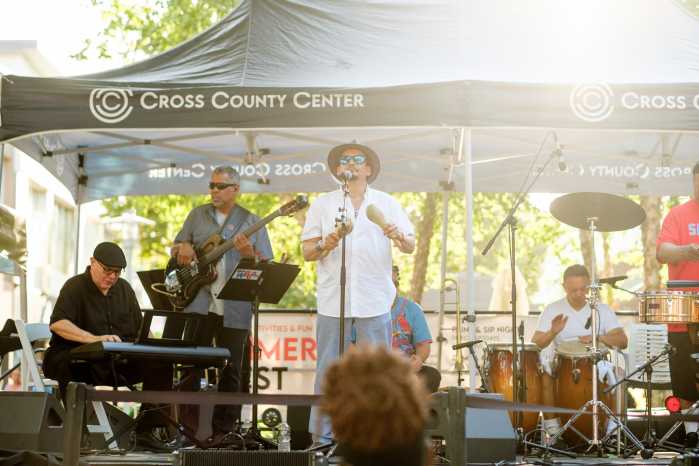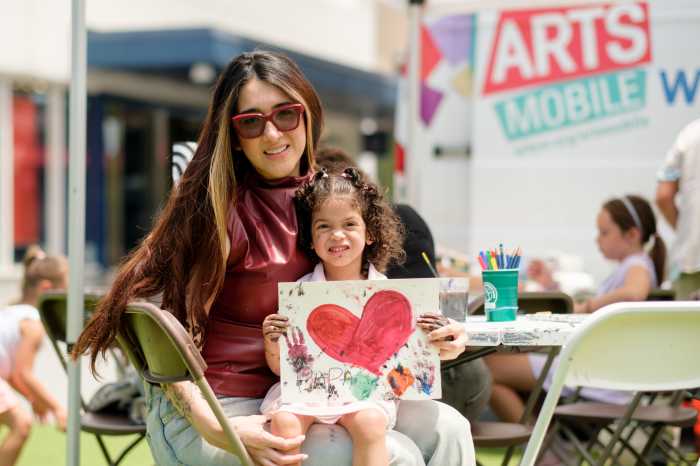I became a mother later in life and finally experienced the deepest love and most incredible joy my mother always told me about but I could never understand. Of course, along with that love came confusion because I had no idea what I was doing. I turned to my mother with questions but quickly realized that we weren’t on the same parenting page.
When my newborn was crying through the night and a nurse explained I needed to get better at swaddling him, my Mom would look my child all nestled in his wrap and say, “They put the babies in jail today!” I laughed at first, then cried a few minutes later, but probably just from postpartum blues I told myself.
I decided to be home with my child, spending my days caring for him, taking him to parks and music classes, while my mother decided to go back to work when I was about 2 because she found being a stay-at-home mom, well, boring.
Sometimes my mother would tell me that I gave my kid too much attention, but I didn’t blame her. She came from another country and time period when doting on kids just wasn’t done. Have you seen The Marvelous Mrs. Maisel? The children eat in the kitchen with the nannies and that’s my Mom’s viewpoint.
Even though we chose different parenting paths, she was, and is, the most loving grandmother or “meme”. And she supports me, and the mom I’ve become. “I could never be as patient as you are as a mom,” she tells me. “You are a much better mother.” It’s amazing to hear, especially right after I’ve beaten myself up for something that I consider went wrong that day.
Stephanie Coontz, director of research at the Council on Contemporary Families and author of the book, A Strange Stirring: The Feminine Mystique and American Women at the Dawn of the 1960s says, “In 1960, only 18 percent of children had married parents who were both employed. Today 34 percent live with dual-earner married parents. Surprisingly to many, however, this increase in women’s work commitment has not resulted in mothers spending less time with children. Today, working mothers and even single mothers actually spend more developmental time with children than SAHMs did in the 1960s.”
It’s amazing to think that even if we have less time with our kids, we still find more time to interact and engage with them. We really are a generation of supermoms! However, even if we are creating more quality time with our kids, it feels like we are having a harder time keeping it all together, logistically and mentally.
Coontz says, “In many ways, mothers feel more confident about their parenting, more supported by their partners, and more intimate with their children than the past. But they also feel more time pressures, and it turns out American parents have the largest happiness deficit with non-parents of the 21 countries recently studied, largely because of our lack of family-friendly leave policies and affordable, quality childcare.”
Lessons learned from mom
My friend Sarah has three kids ages 4, 6, and 8, and has two full-time jobs working as a nurse and nurse practitioner, which is no easy load. She says she learned how to be patient from her mom and to spend time engaging in fun, educational activities with her children such as teaching her kids the alphabet by looking at street signs.
Here is how she’s different than her mom: she listens. Sarah says her mother didn’t always give her the emotional support she needed. Sarah tries to connect with each of her children now and lets them know she’s there for them no matter what they go through.
Local mom and trainer Meghan Convington who has three girls, ages 6, 3, and 7 months, says her mom taught her the importance of making the most out of each moment and getting out, exploring and experiencing life to its fullest. She says, “When I was a child my mom introduced me to all my current favorite things – hiking, yoga, nature, exercise, and meditation. Back then I did a lot of eye rolling, but now these things provide me with so much joy! I try to expose my own children to the same kinds of adventures.”
Where she is “upping her game” is how she feeds her kids. Her mom’s version of healthy eating in the 80s meant opting for wheat bread (aka white bread with brown food coloring) instead of white, and Cheerios instead of Lucky Charms. And their veggies usually came from a can.
Now, Covington avoids processed foods at home and eats a mostly vegetarian diet, stressing the importance of food as fuel for our bodies.
In my case, my mother was more of disciplinarian and said “no” and “be quiet” a lot more than I do with my son. I’m not sure she would have allowed me to leave the house without socks and shoes in 40-degree weather because I threw a fit, like my toddler did this morning. Then again, I want my son to feel free to be himself with less restrictions – though this may backfire!
Maybe moms of today struggle a bit more from the pressure to get it all done, and done well, but somehow we are making it work even if parenting feels messy and confusing at times. And while many of us are raising our kids differently than our mothers, we have learned our biggest lessons about how to parent from the challenges or shortcomings we experienced with our mothers too. So thank you for it all, moms, the good times, the tough times and especially for those Lucky Charms. Happy Mother’s Day!
Ilana Donna Arazie is a Westchester-based freelance writer and mom.
Pointers on how to handle your mom, if you’re parenting differently:
•Don’t Expect to Agree
•Have Compassion
•Say it With Love
•Don’t Share Every Detail
•Focus on Shared Love for Your Children
Pointers on parenting
your own way
•Stay True to Yourself
•Listen to Your Gut Over Mom and Books
•Take Deep Breaths Daily
•Find “You” Time to Reset












